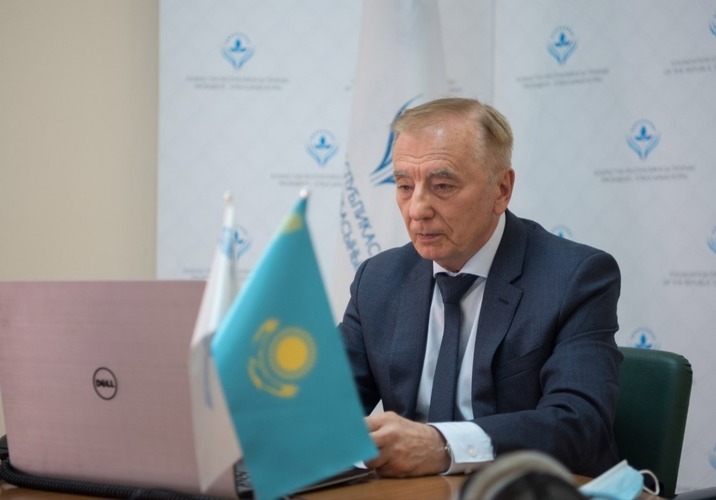For the first time, the meeting of the Venice Commission was held online

On October 8-9, 2020, for the first time, the 124th Plenary Session of the European Commission for Democracy through Law (Venice Commission) was held online. This decision was made by the leadership of the Venice Commission due to the situation with Covid-19 pandemic.
The plenary session was attended by a Kazakh delegation consisting of Deputy Executive Director of the Foundation Nursultan Nazarbayev, member of the Venice Commission of the Council of Europe from the Republic of Kazakhstan – I.I. Rogov and Deputy member of the Venice Commission of the Council of Europe from the Republic of Kazakhstan, member of the Constitutional Council Shapak Unzila.
At the plenary session, the Venice Commission considered and adopted a number of conclusions on the legislation of Moldova (on the draft law on amendments to the Electoral Code, the Code of Administrative Offenses and the Code on the Audiovisual Media Service), Montenegro (on the draft law on the election of members of parliament), Ukraine (on the draft law on democracy through an all-Ukrainian referendum and on amendments to the law "On the judicial system and the status of judges" and some laws on the activities of the Supreme Court and judicial bodies), Georgia (on the draft amendments to the organic law on courts of general jurisdiction), Iceland (on four draft constitutional laws on environmental protection, natural resources, referendums and on the president of Iceland, government, executive functions), Turkey (on the draft law on the Bar), Kosovo (on the draft law on mass gatherings).
Also, the session participants presented the reports prepared by the Commission: on electoral law and election management in Europe; on criminal liability for peaceful calls for radical constitutional changes from the point of view of European doctrine; guidelines for the conduct of referendums; an interim report on measures taken in EU member states in response to the Covid-19 crisis and their impact on democracy, the rule of law and fundamental human rights; on the settlement of electoral disputes.
In accordance with the Charter, the Venice Commission is an independent consultative body that studies the legal systems of the participating States, primarily with a view to bringing these systems closer together, as well as translating into practice the principles of the rule of law and democracy. The Commission promotes the dissemination of the European constitutional heritage. Non-member states also listen to the authoritative opinion of the Commission. Thus, Uzbekistan sent a draft law on freedom of conscience and religious organizations for examination to the Commission, on which a conclusion was given.
Kazakhstan had an observer status in the Venice Commission since 1998, and fourteen years later became its equal member. On March 13, 2012, the President of the Republic of Kazakhstan N. Nazarbayev signed the Decree “On the membership of the Republic of Kazakhstan in the European Commission for Democracy through Law”.
Participation of the Republic of Kazakhstan in the work of the Venice Commission as a full member provides access to advanced foreign legal technologies in the development of national legislation.
During past three years Venice Commission and Kazakhstan established fruitful cooperation. At the request of Kazakhstan’s state bodies, the Commission has repeatedly provided expert and methodological assistance in reforming certain legal institutions.
The recommendations of the Venice Commission are taken into account in the preparation of draft legislative acts and in the adoption of major state decisions in the legal field.

